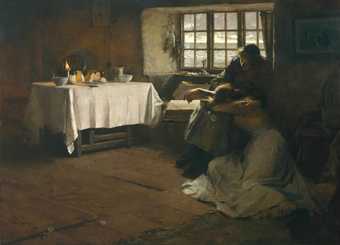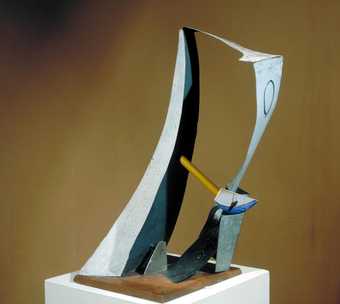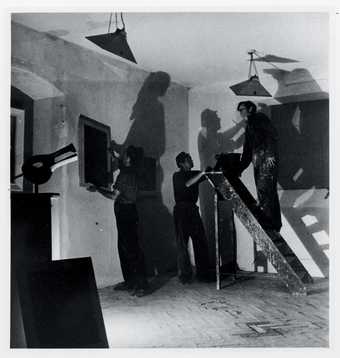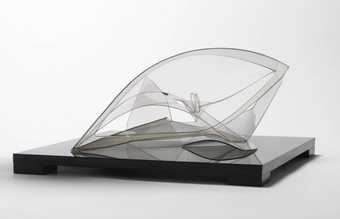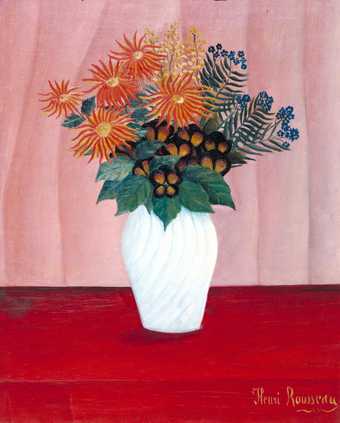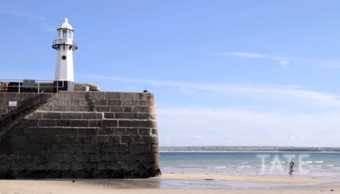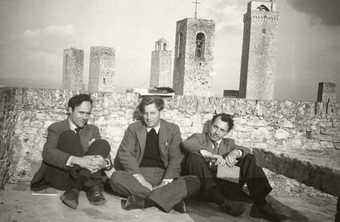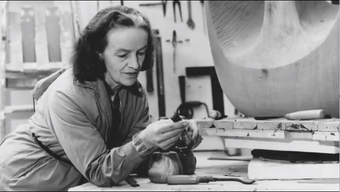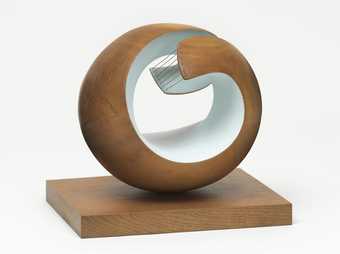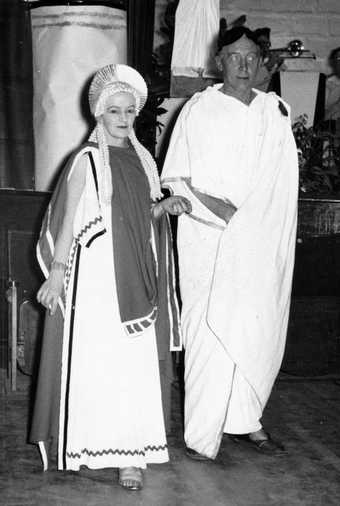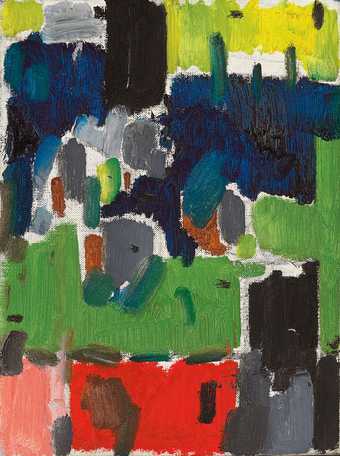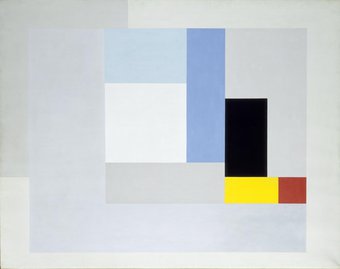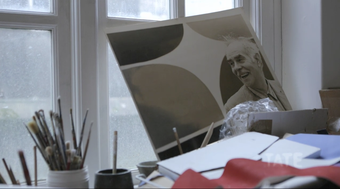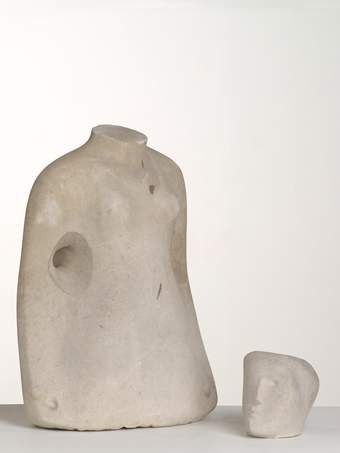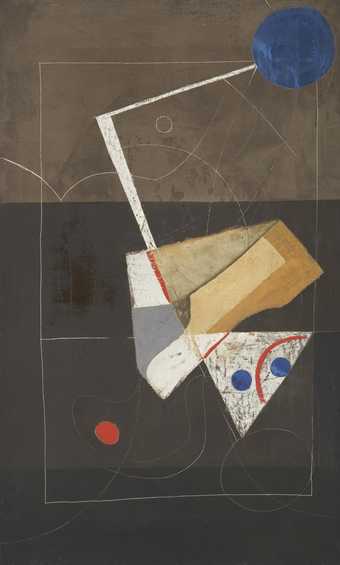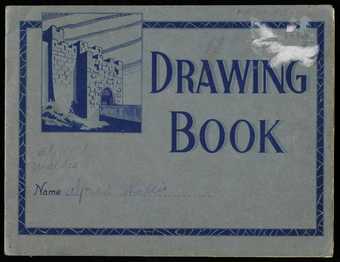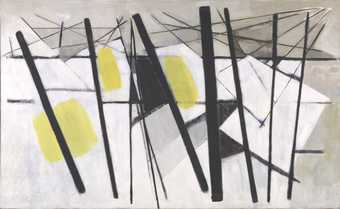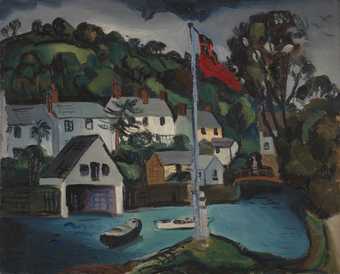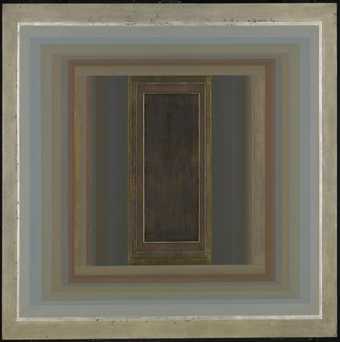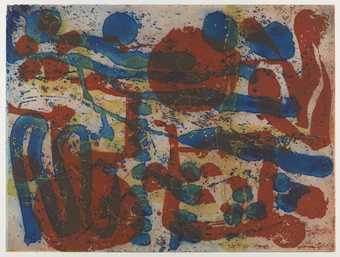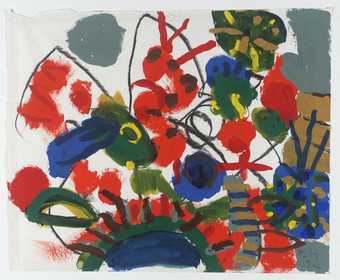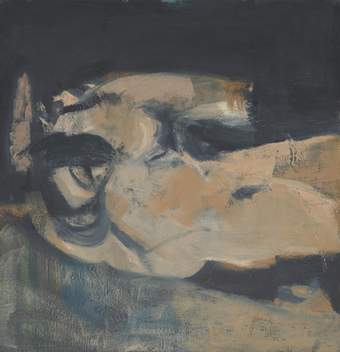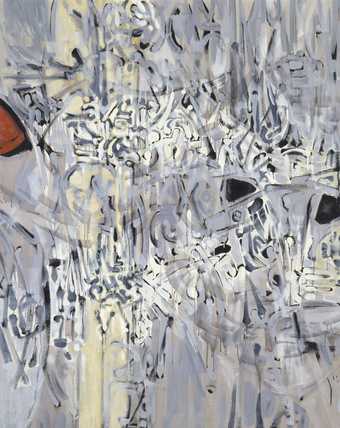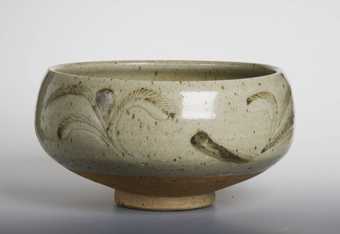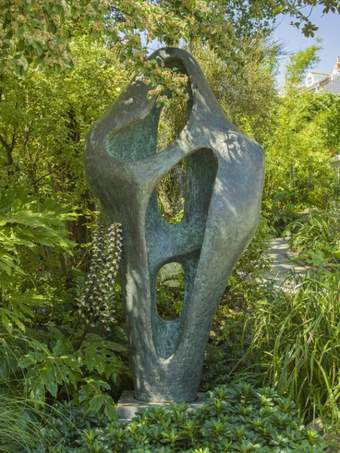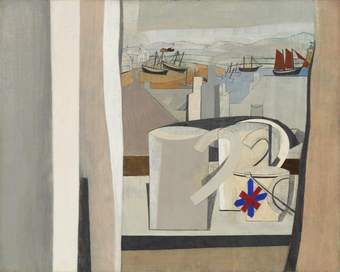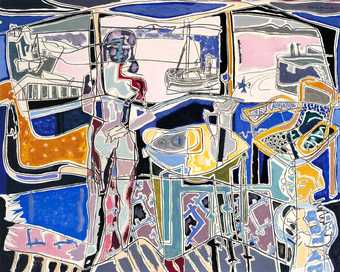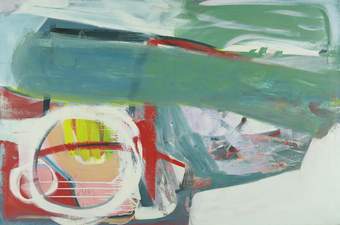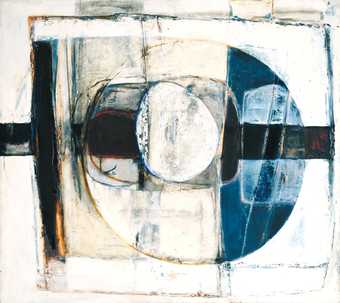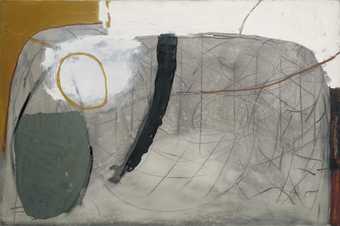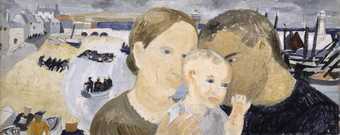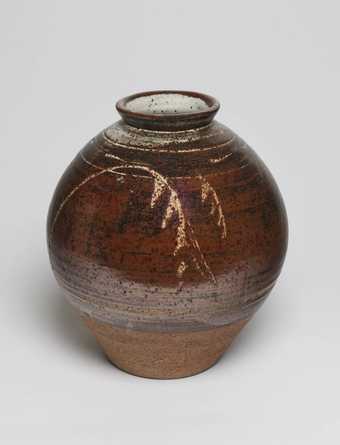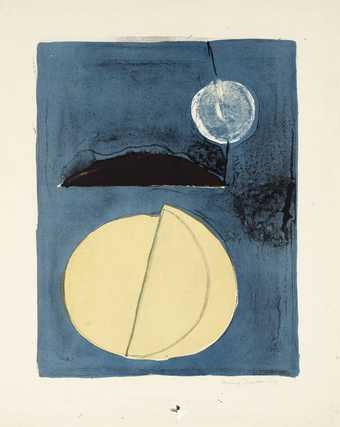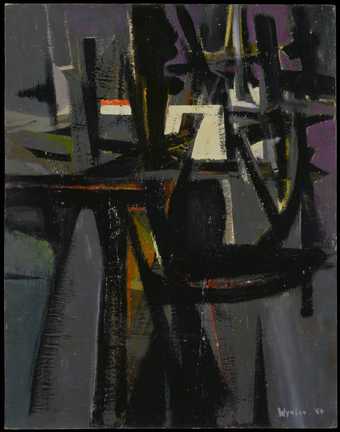West Cornwall’s special quality of light has drawn painters to St Ives since the beginning of the nineteenth century. However the extension of the Great Western Railway to West Cornwall in 1877, which eased access to the remote town, made St Ives even more appealing as a destination for artists.
In 1928 the artists Ben Nicholson and Christopher Wood visited St Ives where they met naïve artist Alfred Wallis, whose painting was to have a profound impact on Nicholson, confirming the modern direction of his work. In 1939 at the outbreak of the Second World War, Nicholson and his then wife the sculptor Dame Barbara Hepworth, both by then fully fledged abstract artists, settled near St Ives, where they were soon joined by the Russian constructivist sculptor Naum Gabo. After the war St Ives became a centre for modern and abstract developments in British art led by Hepworth and Nicholson (Gabo departed in 1946).
From about 1950 a group of younger artists gathered in St Ives and it is with this group, together with Hepworth and Nicholson (until his departure in 1958), that the term St Ives School is particularly associated. As well as a shared interested in abstraction, the St Ives artists were also inspired by the landscape of West Cornwall and used its shapes, forms and colours as a source for much of their work. The principal figures of the St Ives School include Wilhelmina Barns-Graham, Paul Feiler, Sir Terry Frost, Patrick Heron, Roger Hilton, Peter Lanyon, Karl Weschke and Bryan Wynter, together with the pioneer modern potter, Bernard Leach.
The heyday of the St Ives School was in the 1950s and 1960s but in 1993, Tate St Ives, a striking purpose-built new gallery in a remarkable situation on Porthmeor Beach in St Ives, was opened. It exhibits the Tate collection of St Ives School art and related types of art, and has given the town a whole new lease of artistic life.

